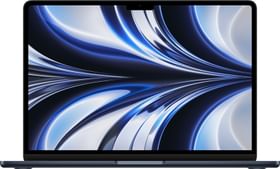Amidst the ongoing chip race, Apple could be moving faster as it is reportedly designing chips that will take advantage of Taiwan-based TSMC’s 2nm fabrication process to power future iPhones and Mac devices.
A post that went viral on LinkedIn and later picked up by a Korean website (gamma0burst) and Revegnus (on Twitter), dictates that an Apple employee is working on the project that talks about ‘TS5nm, TS3mnm, and TS2nm’. Although the purported slide is heavily redacted, one can easily make sense of the aforementioned string. Here 5nm, 3nm, and 2nm stand for the fabrication process that Apple has been working on previously, currently, and in the future, respectively.
Apple & TSMC working closely to fab 2nm chips
Deriving sense from the leaked slide, one could say Apple is already working on a 2nm chipset slated to arrive in 2025. With a lower node size, the size of transistors reduces considerably and that eventually helps fit in more transistors. It translates to higher performance and better power efficiency.

For instance, Apple uses a 5nm chipset on the iPhone 14 Pro series. During the last iPhone 15 Pro series, it upgraded to 3nm chips from TSMC. Thanks to the new and improved fabrication process, the chips were 10% faster in CPU speeds, 20% faster in GPU speeds, and 2x faster in terms of its Neural Engine. Similar improvements were spotted on Apple’s M3 series of chipsets made for Mac devices.
With the latest information in mind, Apple could make apt design changes to the chips to take optimum advantage of TSMC’s 2nm process.
TSMC’s fabrication timeline Iin-tune with apple’
As per the timeline, TSMC – Apple’s top chip manufacturer and supplier, is eyeing 2nm chips by 2025 that should power the future iPhone 17 series. With that being said, TSMC will go on to 1.4nm chips with the initial launch sometime in 2027 before jumping to insane 1nm technologies in the following years. For reference, a human hair strand is 80,000 to 100,000mm in width which goes on to show just how tiny the transistors on these chips are actually.
Undoubtedly, Apple is a major (and top) client for TSMC. So much so that Apple reserved all 3nm chips for Apple last year. With that in mind, we are hoping TSMC will supply the initially manufactured chips (based on the 1.4nm process) to Apple to power the future lineup of iPhones, iPads, and Macs.
TSMC will move from FinFET transistors to GAA-based transistors that will lower the potential of current leaks and increase drive current. This will potentially help the upcoming chipsets to perform well. The Taiwanese chipmaker recently sampled its 2nm chips to Apple and Nvidia and it seems like the former will pick it up first. It doesn’t mean there’s no other player in the game. Samsung is also aggressively working on its 2nm tech that you can read about here.
You can follow Smartprix on Twitter, Facebook, Instagram, and Google News. Visit smartprix.com for the most recent news, reviews, and tech guides.































